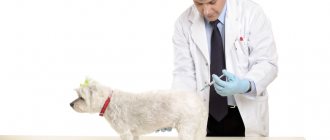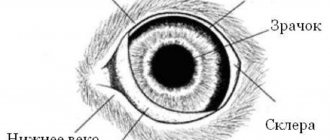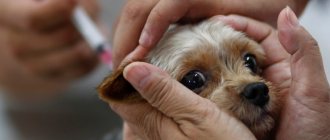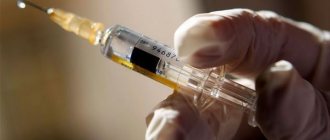“We are responsible for those we have tamed,” these are the words from Antoine de Saint-Exupéry’s book “The Little Prince.” When a person decides to have a pet in the house, he initially takes on great responsibility. If you have adopted a small puppy, remember that it will require careful care, especially in the first year of its life. This includes not only games and feeding, but also regular visits to the veterinary clinic for vaccinations.
- Domestic drugs
What is a vaccine and why is it needed?
This is a special kind of substance containing a weakened or dead virus (or several viruses). After its administration, antibodies are produced that help the animal fight infection. Antibodies remain in the body, preventing new viruses from spreading and harming the dog’s health. The more antibodies and the greater their strength, the stronger the immune system, the less likely it is that any specific disease will occur.
If the dog’s body does not have the necessary antibodies, then when infected with the virus there will be no one to fight it. In this case, the dog will have a hard time suffering from the disease and may die.
In the first 2 months, the puppy is protected by innate immunity, which is formed with mother's milk. Later, he stops eating from his mother, the immune system weakens, so the dog needs to acquire new immunity. This is why vaccination is carried out.
What infections do you need to inject for?
The exact list of vaccines must be determined by a veterinarian. It depends on the region in which you live, as different areas have different degrees of risk for the spread of specific infections. But there is a list of diseases for which a puppy must be vaccinated. It includes: canine distemper (popularly called distemper), parainfluenza, piroplasmosis (unfortunately, vaccines against piroplasmosis are not currently imported into the Russian Federation), parvovirus enteritis, leptospirosis, hepatitis.
In addition, any dog must be vaccinated against rabies. Vaccination against this disease is regulated even at the legislative level.
It should be taken into account that the protection of a puppy from piroplasmosis after vaccination remains controversial. However, there is no need to exclude it from the list of mandatory ones (if the drug is available), since a certain amount of antibodies are produced after it in one way or another. And even if a dog becomes infected, it will overcome the disease much faster and easier.
In addition, you can get an additional vaccination against lichen, but only if there is a risk of infection through possible contact with a sick animal. Ringworm is not included in the standard vaccination plan. It is difficult to say how effectively the vaccination will protect the puppy’s body. The fact is that this fungal disease quickly mutates and can spread throughout the body, despite the fighting antibodies. It will most likely need to be treated upon its appearance.
Rabies vaccination for puppy and kitten
Rabies is a very dangerous, fatal disease, and our region is extremely unfavorable for this viral infection. We vaccinate pets against it starting from the age of three months (earlier periods of administration of such vaccines are not recommended). If an animal is vaccinated for the first time at three months or at an older age, then the complex vaccine may already include the rabies virus.
Regardless of whether the first vaccination includes rabies or not, vaccination almost always goes without complications. Vaccination against rabies in our region is carried out once a year and must be repeated annually on approximately the same dates in order to avoid weakening of immunity.
How puppies are vaccinated
Vaccination frequency
Up to 1 year of age, dogs are vaccinated 3-4 times:
- at 2 months;
- 3 months;
- 6 months. At this age, vaccination is not included in the standard vaccination regimen, but is prescribed by a doctor for certain indications. These include: some dog breeds; puppies that were vaccinated in violation of the standard vaccination plan, etc.;
- 12 months.
Next, dogs are vaccinated once a year. Basically, vaccination periods are the same for all dogs, regardless of breed. But there is a difference in the timing of rabies vaccination:
- All puppies can be vaccinated from 2 months of age,
- In addition, there is early, veterinarians call it zero, vaccination. It is carried out before the puppy is weaned from its mother, usually at the age of 5-6 weeks. As a rule, competent breeders vaccinate their animals early before sale. Zero vaccination can also be done in suckling puppies,
- small breed dogs (Spitz, Chihuahua, Australian Silky Terrier, Affenpinscher, etc.) are vaccinated against rabies no later than 8 weeks of age,
- The first vaccination (at 2 months), it is advisable to do it 14 days after the end of suction. Otherwise, maternal antibodies may reduce the effectiveness of vaccine immunity,
- medium and large breeds of dogs can be vaccinated against rabies at 3 months.
The exact schedule for each dog is drawn up by the doctor. It must not be violated under any circumstances.
Is it possible to vaccinate yourself?
- Self-vaccination of your pet is not prohibited, but it is not recommended! Medical care for a dog should be provided by professionals. To administer the drug, contact a veterinary clinic. Home vaccination is only suitable if you do not have a veterinary clinic nearby. If the animal is vaccinated by the owner himself, he must strictly comply with the conditions of transportation and storage of the drugs. Vaccines should be stored in a dry place, protected from light, at a temperature of +4 to +10 degrees. The refrigerator is ideal for this.
- the doctor washes his hands thoroughly;
- treats the vaccine injection site with alcohol or other antiseptic. Usually the injection is given in the withers or thigh of the hind leg;
- shakes the ampoule with the drug to a homogeneous consistency;
- completely releases air from the syringe. The entry of air into the body along with the vaccine is dangerous for the life of the puppy!
- draws the drug into the syringe;
- slowly introduces it into the treated area.
In addition, for travel, dog shows, and competitions, you need a vaccination passport. And it can only be issued if the dog is vaccinated at the clinic.
How the manipulation takes place in the veterinary clinic:
The insertion of a needle is usually very frightening for pets, especially if the vaccination is being done for the first time. The puppy is held down so as not to be accidentally injured by the needle if it starts to squirm.
Notes for new dog owners
The main questions of novice dog breeders and the answers to them are given below.
- Where is the injection given? Depending on the drug, intramuscularly into the thigh or subcutaneously into the withers.
- How long does the vaccine last? Immunity lasts up to three years, but for prevention purposes the animal is vaccinated every year.
- At what age does immunity develop? By the age of three.
- Is it necessary to immunize an indoor dog? Rabies is not necessary, but vaccination against other infections is required.
Find out what the rabies situation is like in your area of residence. If cases are isolated, then you shouldn’t worry too much about your pet, but to be sure, it’s better to get vaccinated.
What medications are needed?
- Typically, two types of vaccines are used to vaccinate puppies:
- Monovalent. They protect the dog from only one disease, but it is very effective, since the antibodies produced are of higher quality. At the same time, they put little stress on the body. The dog will be able to recover quickly after vaccination. However, if you want to reduce the risk of other diseases, you will have to get several vaccinations. Such drugs are convenient in cases where you need to create an individual vaccination schedule.
- Polyvalent. Aimed at producing antibodies to combat several diseases at once. They are slightly weaker than monovalent ones, but they still give a positive effect. Such vaccines place a large burden on the animal’s body, so they are recommended to be administered only to adult dogs.
Rules for vaccinating dogs against rabies
The following animals should not be vaccinated against rabies in dogs:
- Sick or recently suffered a serious illness;
- Those in postoperative mode;
- Weakened for another reason (trauma, infection with worms, physical exhaustion);
- Under three months of age (or the appropriate vaccine must be selected).
Contraindications to vaccination against rabies in dogs may also include recent ear cropping surgery (at least two weeks must pass after cropping), pregnancy, or lactation.
It should be remembered that vaccines from different manufacturers have different contraindications and rules of use. That’s why it’s so important to entrust your dog’s rabies vaccination to an experienced veterinarian who will select a suitable vaccine that has passed all clinical trials and is safe for your pet. The veterinarian will also answer all questions regarding vaccination and check the dog’s readiness for vaccination.
How much does vaccination cost?
The cost of drugs depends on the country of origin. Typically, imported vaccines are considered to be of higher quality. The price for them, for obvious reasons, is more expensive than for Russian ones. The cost of the drugs depends on the country of origin. Usually, imported vaccines are considered to be of higher quality, although there are no objective reasons for this. But their price is more expensive than Russian ones.
Domestic drugs
- Russia produces many vaccines, both mono- and polyvalent. Among them:
- Biovac is a drug that prevents the occurrence of diseases such as canine distemper (aka Carré's disease), leptospirosis, and parvovirus enteritis. Costs about 200 rubles.
- Dipetavak prevents adenovirosis, enteritis, hepatitis, leptospirosis, canine distemper, and rabies. Cost – 200 rub.
- Polivak-TM is the cheapest drug (60 rubles), but they are vaccinated only against dermatomycosis.
- Multikan costs 120 rubles and has 8 varieties depending on the number of specific viruses: Carré disease, adenovirus, parvovirus enteritis.
In terms of efficiency, they are inferior to imported ones, but in general they cope with their task and are cheaper.
Imported drugs
“Vetpomosch” works only with effective imported vaccines. Our doctors use such well-proven drugs to vaccinate dogs as:
- Eurican is a polyvalent vaccine against canine distemper, adenovirosis, parvovirus enteritis, parainfluenza-2, canine leptospirosis,
- Vanguard is a polyvalent vaccine against canine distemper, infectious hepatitis, adenoviral infection, parainfluenza, parvovirus enteritis (types 2, 2a, 2b and 2c), canine leptospirosis,
- Nobivak is a polyvalent vaccine against canine distemper, parainfluenza, parvovirus enteritis, and hepatitis.
- Monovalent for rabies - Rabizin, Defensor. The practice of using these drugs has shown that they form lasting immunity in dogs of all ages and breeds against the most dangerous diseases. Animals tolerate vaccination well.
Vaccination of domestic animals against rabies has started in the South-Eastern Administrative District
Residents of the South-Eastern District will be able to use the services of mobile rabies vaccination centers for pets in January. The points will operate in the areas of Maryino, Nizhegorodsky, Vykhino-Zhulebino, Kuzminki, Tekstilshchiki and Ryazansky. Vaccination is carried out with the domestic drug "Rabican".
Please note that free vaccination of pets against rabies began in all Moscow districts in January 2021. If proper preventive measures are not followed, this dangerous viral disease can threaten the health of not only pets, but also their owners.
“It is necessary to vaccinate not only dogs, but also cats,” Gennady Pogrebnyak, chief physician of the Kalinin district veterinary hospital, told YuVK. – Often cat owners neglect vaccination, citing the fact that their pet is at home all the time. But a cat can escape through a window into the street and become infected.
Only healthy animals can be vaccinated. It is recommended to give the animal anthelmintic drugs 10 days before vaccination.
Residents of the South-Eastern Administrative District who want to vaccinate their pets can contact the Kalininsky local veterinary hospital or the animal disease control station of the South-Eastern Administrative District, which operate daily. Additional information can be obtained by calling: 8 (495) 361-43-16. The schedule of on-site vaccination points can be found on the mos.ru website in the Veterinary Committee section. Details by phone. (495) 612-0425. You can call a veterinarian using the same number for free vaccination at home.
Schedule of operation of on-site vaccination points in the South-East Administrative District:
| Area | Address | date | Time |
| Maryino | st. Maryinsky Boulevard, 1 (ODS) | 23.01.2021 | 10:00-14:00 |
| Nizhny Novgorod | st. 3rd Karacharovskaya, 6, building 1 (ODS) | 23.01.2021 | 10:00-14:00 |
| Vykhino-Zhulebino | Samarkand Boulevard, block no. 137 A, room 5 under 5 (ODS) | 23.01.2021 | 10:00-14:00 |
| Maryino | st. Maryinsky Boulevard, 1 (ODS) | 24.01.2021 | 10:00-14:00 |
| Kuzminki | Volgogradsky p., 135 k. 5 (ODS) | 24.01.2021 | 10:00-14:00 |
| Nizhny Novgorod | st. 3rd Karacharovskaya, 6, building 1 (ODS) | 24.01.2021 | 10:00-14:00 |
| Maryino | Bataysky proezd, 35 (ODS) | 30.01.2021 | 10:00-14:00 |
| Kuzminki | Volgogradsky Prospekt, 130, building 3 (ODS) | 30.01.2021 | 10:00-14:00 |
| Textile workers | Volzhsky Boulevard, 8, building 3 (ODS) | 30.01.2021 | 10:00-14:00 |
| Maryino | Bataysky proezd, 35 (ODS) | 31.01.2021 | 10:00-14:00 |
| Ryazansky | st. Mikhailova, 13 (ODS) | 31.01.2021 | 10:00-14:00 |
| Textile workers | Volzhsky Boulevard, 8, building 3 (ODS) | 31.01.2021 | 10:00-14:00 |











